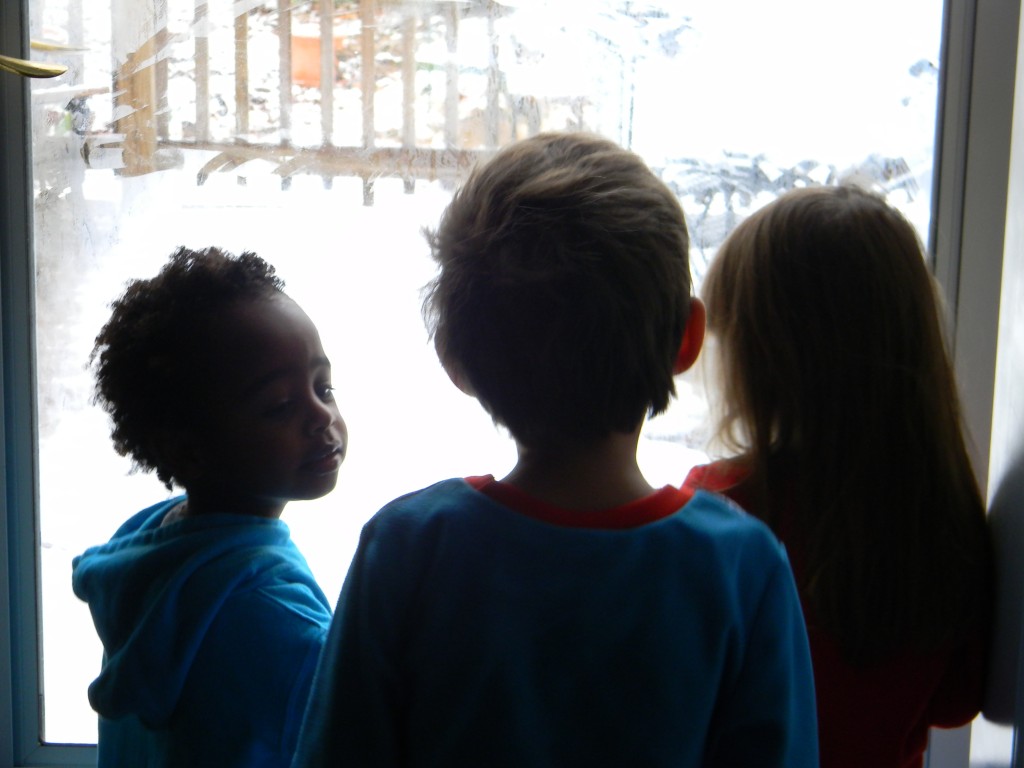When we were in the process of adopting, we took a lot of classes and read a lot of books about parenting trans-racially and the cognitive development of children. There are several unique nuances to raising a child who has an adoption story and whose race or ethnicity is not the same as yours, and we wanted to be deliberate about how we parented. One of the things we learned is that children will begin to notice differences in body size, color, ability between the ages of 4-6. When our family and, more specifically, our child encountered children that age, we might hear comments or be asked questions that we should be prepared to answer. There’s nothing wrong with that- it’s just the developmental age when those things begin to register. A child who says “You are brown” isn’t a child who has been raised by racists or a racist himself. He’s just noticing his world. BF and I were prepared for these moments. Or so we thought.
Soon enough, those moments started happening. A child, usually between the ages of 4-6 (those books were right!), would see us at the grocery store or in a restaurant and ask his mom why that little boy was brown but his parents were not. BF and I would smile reassuringly and begin to answer when, inevitably, the mom would flush red, grab her kid, and RUN away from us. I am certain she was thinking, “I did not raise my child this way and now those people think I am a racist.” I wish I could assure her that we don’t; that her kid is just right developmentally. He is simply trying to make sense of his world, better understand how families come together because he’s never seen a family like ours. I wish we could have stopped them and said, “Seriously, this isn’t a big deal. We’re happy to explain how our family came together.”
This past Monday, my sister and I met at my parents’ house for a ‘slumber party’ at the grandparents. She has a daughter and son who are 4 and 5. The cousins spent the afternoon playing with gusto and then grew quiet as they sat around the table for dinner. All of a sudden, Watty, my sister’s son, said, “Hey, we’re different.” He said it more to himself than any of us, but my sister and I caught each other’s eyes.
“Do you think he’s talking about…” I started.
“I don’t know,” she said and then turned to him. “Hey, Watty, we’re all different.”
Watty looked up from the piece of bread he was munching. “Yeah,” he said. “Happy and I are different because I am pink, and he’s brown, but we’re the same because we’re both boys.”
It was like a page out of a Sesame Street book.
I quickly agreed and explained that that was the truth with all people. That we were all the same and different at the same time. If he tried hard enough, he could always find something that he had in common with someone else. Soon, we were moving in different combinations around the table. Sonia and I are the same because we are both girls, but we are different because I’m taller. Happy and I are the same because we both have black hair and brown eyes, but we are different because he is a boy and I am a girl.
In parenting books, they tell you to answer just what you are being asked when you face the bigger questions and to take the child’s lead on how far to go. Sure enough, Watty was satisfied with those comparions and contrasts. He moved on. Like all kids, all Watty wanted was for his observations to be heard and valued. His world made sense. Meanwhile, the 2 and 4 year olds at the table were none the wiser. The conversation didn’t even register for them. Some day, they’ll have big questions, too, and Watty will add more of his own to our conversations. What we want them to know is that we’re always receptive to them, that how we build growth and understanding is through asking those big questions and finding the answers. As parents who want so much for our kids, most of all the gift of understanding, compassion, and acceptance, I’m hopeful we’ll find just the right words then to help them make sense of their worlds.




What an great story! It reminds me of the book Nutureshock, which talks about how kids notice differences in skin color, but soon realize it’s not OK to talk about them. You & your sister handled this beautifully!